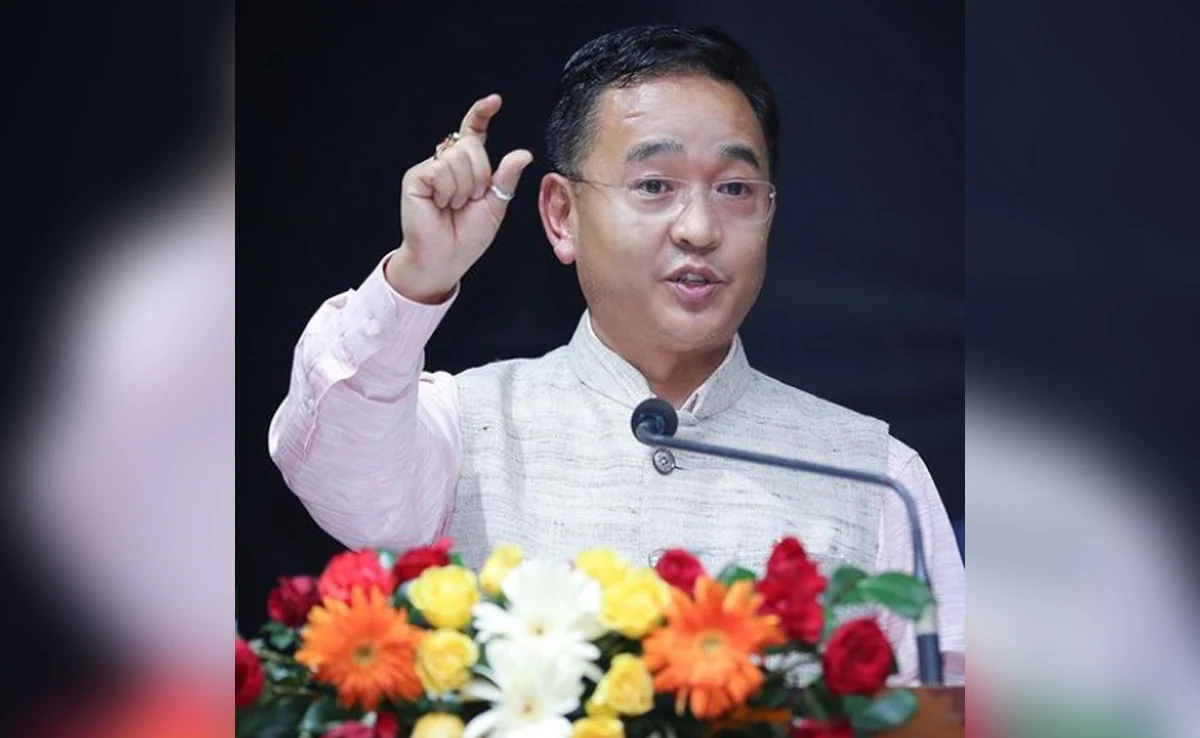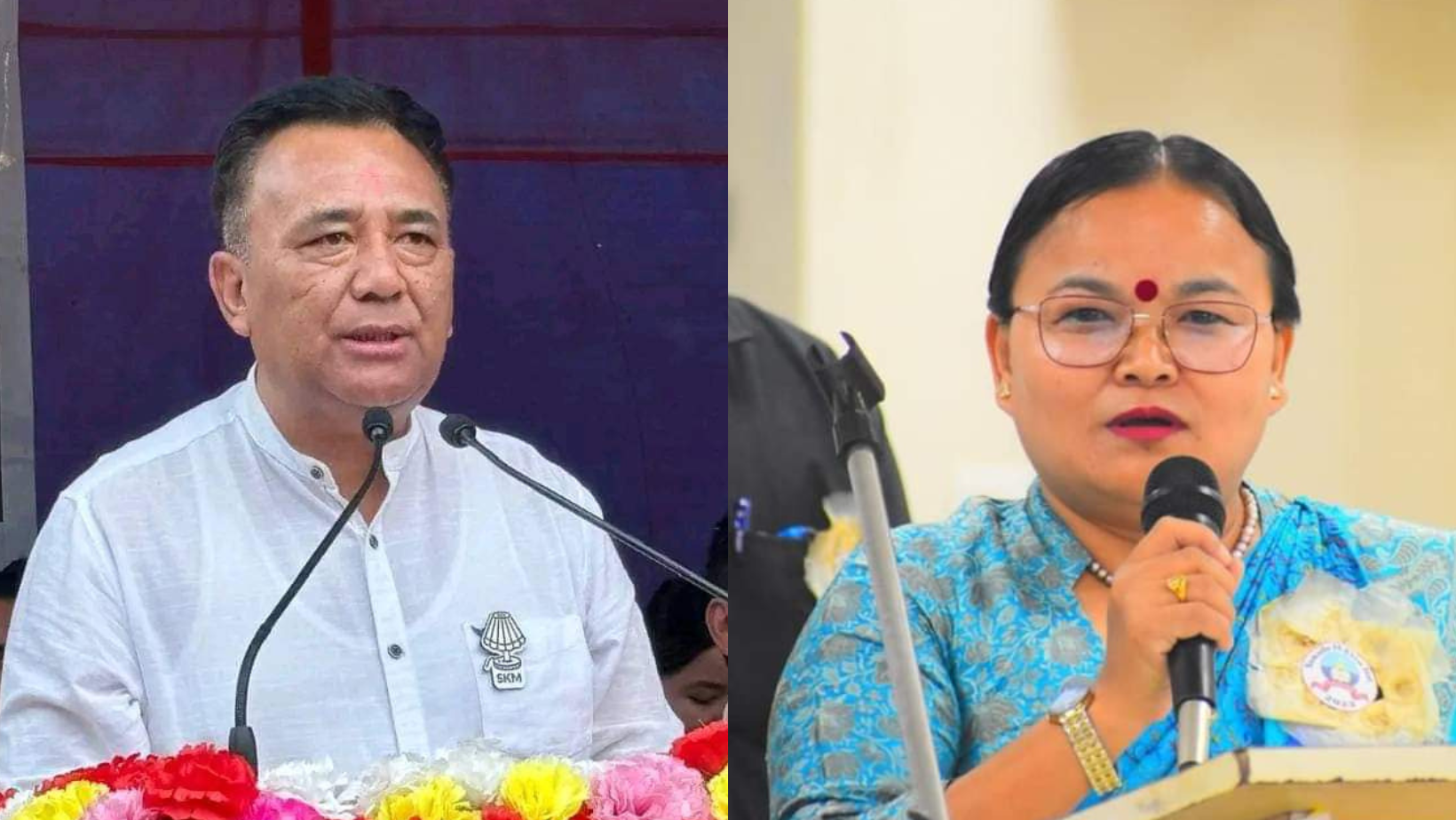Home / sikkim / Northeast By-Elections: Family Ties Shape the Poli
Northeast By-Elections: Family Ties Shape the Poli
By: My India Times
2 minutes read 83Updated At: 2024-11-09

In a display of strong family influence in northeast India’s political arena, Aditya Golay Tamang, the son of Sikkim Chief Minister Prem Singh Tamang, secured victory in the Soreng Chakung Assembly constituency unopposed. His win not only highlights the power of family ties but also the ongoing trend of political dynasties in the region’s bypolls. Tamang, representing the Sikkim Krantikari Morcha (SKM), was one of two candidates from his party to win without contest in these by-elections. Satish Chandra Rai, the second SKM candidate, clinched the Namchi-Singithang seat after his opponent, Sikkim Democratic Front (SDF) candidate Daniel Rai, withdrew from the race.
The lack of competition in these seats has stirred conversations on the influence of established political families within the northeast and reflects a growing trend where relatives of political leaders increasingly step into prominent roles. This trend is not new but has become a defining characteristic of by-elections across the region, where candidates are often seen as inheriting political legacies.
The Legacy Factor in Northeast Politics
The victories of candidates like Aditya Golay Tamang not only underscore the power of political lineage but also point to a shift in voter expectations and loyalty within northeastern states. For families like the Tamangs, political lineage provides a significant advantage, with support often deeply rooted in community ties and the established legacy of leadership.
Implications for Future Elections
The success of family-backed candidates in this year’s bypolls could signal a potential roadmap for future elections in the northeast. As more leaders from established political families gain seats unopposed or with minimal opposition, their influence and ability to shape state policy may continue to grow, potentially affecting legislative dynamics in Sikkim and beyond.
Call for Democratic Diversity
While family legacy can be a unifying factor, there is a call from some political voices for greater democratic diversity, where fresh faces and ideas can emerge without the weight of political lineage. Sikkim’s bypolls illustrate a nuanced narrative, showcasing both the staying power of family politics and the need for a democratic landscape that allows for broader representation and competition.
As the results unfold and these newly elected leaders take office, all eyes will be on how they leverage their inherited influence to address the needs of their constituencies and drive change in the northeast.
....In a display of strong family influence in northeast India’s political arena, Aditya Golay Tamang, the son of Sikkim Chief Minister Prem Singh Tamang, secured victory in the Soreng Chakung Assembly constituency unopposed. His win not only highlights the power of family ties but also the ongoing trend of political dynasties in the region’s bypolls. Tamang, representing the Sikkim Krantikari Morcha (SKM), was one of two candidates from his party to win without contest in these by-elections. Satish Chandra Rai, the second SKM candidate, clinched the Namchi-Singithang seat after his opponent, Sikkim Democratic Front (SDF) candidate Daniel Rai, withdrew from the race.
The lack of competition in these seats has stirred conversations on the influence of established political families within the northeast and reflects a growing trend where relatives of political leaders increasingly step into prominent roles. This trend is not new but has become a defining characteristic of by-elections across the region, where candidates are often seen as inheriting political legacies.
The Legacy Factor in Northeast Politics
The victories of candidates like Aditya Golay Tamang not only underscore the power of political lineage but also point to a shift in voter expectations and loyalty within northeastern states. For families like the Tamangs, political lineage provides a significant advantage, with support often deeply rooted in community ties and the established legacy of leadership.
Implications for Future Elections
The success of family-backed candidates in this year’s bypolls could signal a potential roadmap for future elections in the northeast. As more leaders from established political families gain seats unopposed or with minimal opposition, their influence and ability to shape state policy may continue to grow, potentially affecting legislative dynamics in Sikkim and beyond.
Call for Democratic Diversity
While family legacy can be a unifying factor, there is a call from some political voices for greater democratic diversity, where fresh faces and ideas can emerge without the weight of political lineage. Sikkim’s bypolls illustrate a nuanced narrative, showcasing both the staying power of family politics and the need for a democratic landscape that allows for broader representation and competition.
As the results unfold and these newly elected leaders take office, all eyes will be on how they leverage their inherited influence to address the needs of their constituencies and drive change in the northeast.
By: My India Times
Updated At: 2024-11-09
Tags: sikkim News | My India Times News | Trending News | Travel News
Join our WhatsApp Channel














.jfif)



























































































.png)
 (1).png)























